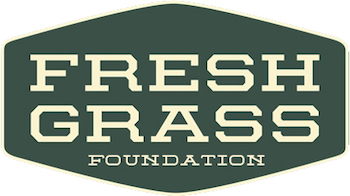Album Review: Hazel Dickens & Alice Gerrard, ‘Sing Me Back Home: The DC Tapes, 1965-1969’


The second half of the 1960s saw the rise of folk-rock on the popular stage, after Bob Dylan showed up at the Newport Folk Festival with the Paul Butterfield Blues Band and scandalized his fanbase by “going electric” in ’65. But even as Dylan led a folk-rock renaissance in the mainstream, the folk music world that’s always churning along on the fringes hardly deflated.
Among its greatest stalwarts were Hazel Dickens and Alice Gerrard, who rose to the fore of the bluegrass world, specifically, singing labor movement songs and bluegrass standards in the ensuing decade.
Now a new album, Sing Me Back Home: The DC Tapes, 1965-1969, pulled from Gerrard’s personal archive, gives us a view into the duo’s earliest canon. These were the years when they were also recording with New Lost City Rambler Mike Seeger and show a command of traditional forms to rival his.
Here, the pair tackles a number of American standards with outstanding skill and ease: “Little Darling Pal of Mine,” “Bye Bye Love,” “Cannonball Blues,” and many more.
One of the most interesting tunes on this newly released collection is Hazel & Alice’s version of “This Little Light of Mine,” which is sung in a hurried round with full Appalachian old-time aplomb. It transmogrifies the old freedom song from a gospel declaration to a triumphant, running charge. You can almost hear them smiling together as they chase each other through the refrain: “Every day, every day, every day, every day, gonna let my little light shine.”
Perhaps what’s most astonishing, though, is how Hazel & Alice move through folk, blues, pop, and other styles with the same level of proficiency and charisma as they are known for bringing to the style that made them famous. Yes, Dickens’s high lonesome bluegrass voice is a delightful instrument, anchored by Gerrard’s powerful alto. But this recording depicts a duo at its best when not pigeonholed into one tiny realm of roots music.
The individual performances are excellent, to be sure, but the greater artistic statement we get from this album is that these artists were, by the time they rose to prominence, fluent in the American songbook, intimately aware of the deep connections between its various roots music forms.
Understanding that foundation, we can more thoroughly appreciate their later recordings the way taking in a whole tree can amplify the beauty of its blooms.
For anyone interested in the way all these American music forms are intricately connected, Sing Me Back Home is a clear look into what may often seem like muddy water. Further, the fact that most of these songs have never been commercially released makes it a vital addition to the serious folk fan’s collection.
###
Sing Me Back Home: The DC Tapes, 1965-1969 is out now via Free Dirt Records and available here at iTunes and Amazon.com.



